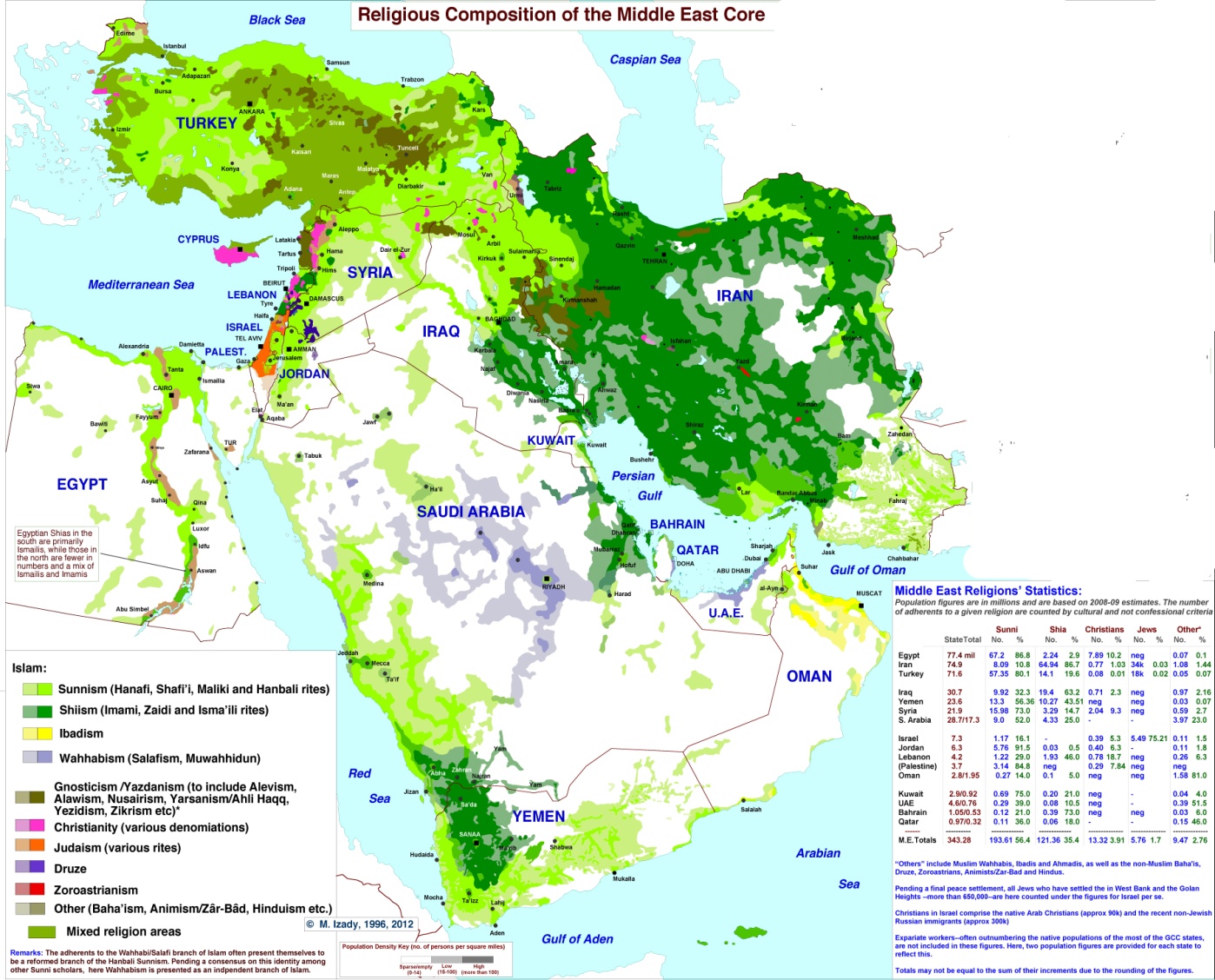Introduction
In the Middle East, Judaism is synonymous with the state of Israel. The country and the religion are completely inseparable.
Of all the Middle-Eastern states, Judaism is practiced almost exclusively in Israel. 74.9% of the population identifies as Jewish (Israel Central Bureau of Statistics t. 1). 26.5% of those identify themselves as Orthodox. 10%, known as Haredim, are a part of the Ultra-Orthodox movement. 3.9% and 3.2% named themselves Conservative or Reform Jews respectively (Ettinger par. 4). Only isolated communities exist outside the country. The distribution is explained by the unending conflict over between the Palestinians and the Jews over the former Palestine land. That tension was amplified by the Six-Day War when the Israeli forced crushed the opposing Islamic armies. Thus, in the Middle East Judaism is centered in Israel.
Main body
The Jewish denizens of the Middle East are generally less militant and less aggressive than their Muslim counterparts. On the other hand, Judaism, unlike Christianity, is not completely overshadowed by the Islamic influence in the region. Jewish population actively works with the Western nations to ensure their influence in the region remains significant. Most of the Jews are driven by the concept known as Zionism. It is a movement dedicated to reinstating and maintaining the Jewish dominance on the territories of the historic Land of Israel. The sectarianism within Judaism is limited. Some of the Orthodox groups can sometimes be prone to violence but, for the most part, Jewish people hold similar beliefs, and there are no dramatic schisms like the one between Shia and Sunni Muslims.
However, some of the Haredi Jews oppose the idea of Zionism. They condemn the secular nationalism and even state that the creation of Isreal was a sinful act. That does not, however, stop them from creating alliances of convenience with the nationalist groups (Jelen and Wilcox 178). Haredi parties are influential in Israel holding, at some point, 23 of the 71 seats belonging to the ruling majority. Despite their constant disagreements with the official government, the Ultra-Orthodox Movement is influential. Haredim are considered to be the keepers of the Jewish culture and traditions. More moderate Conservative and Reform groups are not largely recognized and have little real weight in the political life of Israel (Ettinger par. 8).
While, as a state, Israel seeks to secure its position in the region, the Orthodox movement is detached from the global questions of war and peace. Haredi Jews are even exempt from the compulsory military service since it is considered to be unfit for a modest religious student. Ultra-Orthodox students even receive significant scholarships for their religious studies while the military conscripts only get minimal pay. The main focus of the religious movement is on maintaining the Jewish traditions. For example, Haredim have secured gender segregated flights for the Orthodox (Nahshoni par. 1). They also frequently protest against the disruption of the traditional values.
Conclusion
Most of the Jewish population in the Middle East is working to keep their lands which are besieged by the Muslim forces claiming the same right for the land as the Israeli government. As a result, the Jews are probably the most consolidated people in the Middle East with little inner disagreement or conflict. The Jews are the most West-oriented and modern of the Middle-Eastern cultures. They are also the most likely reason why the other communities are so aggressive towards the US and their allies. The creation of Israel is one of the major causes of the current instability in the region.

The map illustrates the overwhelming influence of Islam on the Middle East, as well as the precarious position of Isreal.
Works Cited
Ettinger, Yair 2013, “Poll: 7.1 Percent of Israeli Jews Define Themselves as Reform or Conservative”. Haaretz. Web.
Israel Central Bureau of Statistics 2016, “Population, by Population Group”. Web.
Jelen, Ted Jerard and Clyde Wilcox. Religion and Politics in Comparative Perspective: The One, The Few, and The Many. Cambridge, UK: Press Syndicate of the University of Cambridge, 2002. Print.
Nahshoni, Kobi 2009, “El Al to launch kosher flights for haredim”. Ynetnews. Web.